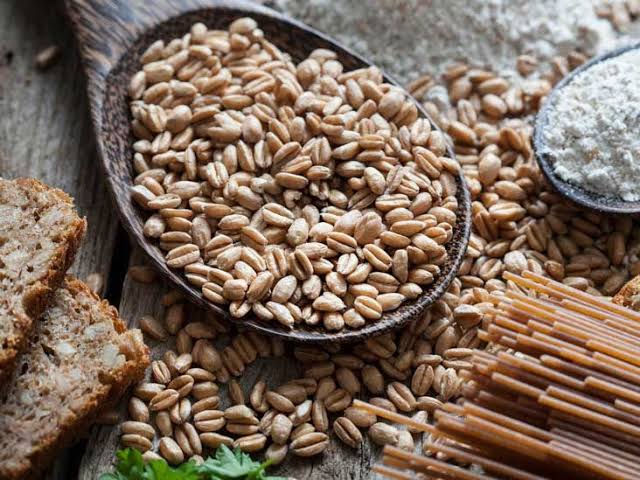Benefits of Spelt Flour
- Shaun Sadler

- Jul 15
- 3 min read
Updated: Jul 18
The Benefits of Spelt Flour: Ancient Grain, Modern Superfood
In a world full of highly processed foods and refined grains, many people are turning back to traditional ingredients for nourishment, flavour, and balance. One such ingredient making its way into health-conscious kitchens is spelt flour — an ancient grain with deep roots in history and a wealth of benefits for the modern body and mind.

What is Spelt?
Spelt (Triticum spelta) is a distant cousin of modern wheat, first cultivated over 8,000 years ago. Once a staple grain in parts of Europe and the Middle East, it fell out of popularity during the industrial rise of white, refined wheat. But as more people seek natural, nutrient-dense alternatives to overly processed grains, spelt is making a powerful comeback.
What sets spelt apart from modern wheat is its uncompromised genetic structure. It hasn't been hybridised or modified to the extent modern wheat has, meaning it maintains its original nutritional profile — and, for many, is easier to digest and more nourishing.
Nutritional Benefits of Spelt Flour
Spelt flour is a nutritional powerhouse, packed with vitamins, minerals, and fibre. Here's what makes it stand out:
Rich in Fibre Spelt contains significantly more dietary fibre than common wheat. This supports healthy digestion, helps regulate blood sugar levels, and promotes a feeling of fullness, which can aid in healthy weight management.
High in Protein Spelt contains around 5–6 grams of protein per serving, making it a great choice for vegetarians or anyone looking to naturally boost their protein intake. Protein is essential for muscle repair, immune function, and satiety.
Abundant in Essential Minerals Spelt is an excellent source of magnesium, iron, zinc, phosphorus, and manganese — all of which are vital for energy production, bone health, and nervous system support.
Complex Carbohydrates for Sustained Energy Unlike refined flours that spike your energy and drop you quickly, the complex carbs in spelt offer a slower release of energy — ideal for those looking to maintain stable blood sugar throughout the day.
Easier to Digest
While spelt does contain gluten, its gluten structure is more fragile and water-soluble compared to modern wheat. This makes it easier to break down and digest for many people, especially those with mild gluten sensitivities (though it is not suitable for those with coeliac disease). Many who struggle with bloating or discomfort after eating wheat find spelt a gentler option.
Better for the Planet
Spelt is naturally hardier and more resilient than modern wheat. It requires less chemical input like fertilisers and pesticides, making it a more sustainable and environmentally friendly crop. Because of its tough outer husk, it’s also better protected from pests and pollutants, which contributes to its purity and nutritional retention.
Choosing spelt means choosing a grain that supports soil health, biodiversity, and sustainable farming — values that align with a more conscious, earth-friendly lifestyle.
How to Use Spelt Flour
Spelt flour is wonderfully versatile and can be used in most recipes that call for wheat flour. It has a light, slightly nutty flavour that enhances everything from muffins and pancakes to bread, pizza bases, and even pastry.
Tips for baking with spelt:
Start by substituting 25–50% of your regular flour with spelt to get used to the taste and texture.
Spelt absorbs less water, so you may need slightly less liquid in recipes.
Because of its softer gluten, avoid over mixing — especially in cakes or muffins — to keep the texture light.
Final Thoughts
Spelt flour is more than just a trend — it's a return to roots, a reconnection with ancient nourishment, and a mindful choice for those seeking better health through real, whole foods. Whether you're baking for your family, experimenting in the kitchen, or simply looking to fuel your body with more integrity, spelt flour offers a beautiful balance of nutrition, flavour, and sustainability.
At Origins By Nature, we believe in the power of simple, natural ingredients to bring us back to what truly matters — health, family, and the earth that sustains us.

Comments